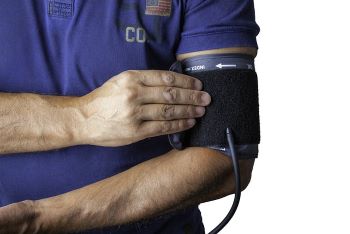1 in 3 UK doctors found to be struggling with their workload and almost 1 in 5 reducing hours, survey finds
September 2024 - Health
 1 in 3 UK doctors found to be struggling with their workload and almost 1 in 5 have reduced their hours: The latest edition of an annual survey commissioned by the General Medical Council (GMC) has revealed that 33% of doctors were found to be struggling with their workload last year, often working beyond their set hours and regularly feeling unable to cope with the amount of work they had. Although this is an improvement from 2022 (38%), the number of doctors reducing their working hours to preserve their wellbeing has increased to almost 20%; an act which could be seen as another indicator of the struggles faced by this profession.
1 in 3 UK doctors found to be struggling with their workload and almost 1 in 5 have reduced their hours: The latest edition of an annual survey commissioned by the General Medical Council (GMC) has revealed that 33% of doctors were found to be struggling with their workload last year, often working beyond their set hours and regularly feeling unable to cope with the amount of work they had. Although this is an improvement from 2022 (38%), the number of doctors reducing their working hours to preserve their wellbeing has increased to almost 20%; an act which could be seen as another indicator of the struggles faced by this profession.
The GMC’s annual‘Workplace Experiences’ report, published in August 2024, examines the experiences of doctors across the UK. The report also investigates teamworking, the experiences and perceptions of doctors with non-UK primary medical qualifications who are working in the UK, and stakeholders views and perceptions about doctors’ workplace experiences. Much of the research was commissioned work, with many of the findings coming from a survey of 4,288 doctors currently practising in the UK. Each doctor completed an online survey in the autumn of 2023.
The report revealed that a higher proportion of doctors had taken the decision to reduce their working hours last year, with 19% dropping their hours in 2023 compared to just 8% in 2021. Many more had also declined additional work, with 4 in 10 doing so in 2023 compared to just 23% who declined extra work in 2021. These changes may be linked to the mounting struggles faced by many doctors in the survey; 43% of doctors surveyed said they found it difficult to provide their patients with the sufficient level of care needed at least once a week (an 18% increase from 2021). These concerns were also linked to a high risk of burnout, together with lack of support and struggling with workload.
Regarding satisfaction, just over half (53%) of doctors reported being satisfied with their day-to-day work, a similar figure to the 50% in 2022. However, this is a big decline from the 70% satisfaction rate of 2021. There was a direct correlation between doctor positivity and perceived autonomy levels; those who felt they had enough autonomy at work were more likely to be satisfied (64%) compared to a satisfaction rate of less than a third amongst those who did not feel they had sufficient autonomy (27%).
One positive outtake was that 85% of those surveyed said they were supported by their immediate colleagues, a consistent statistic over the years. Six in ten said they felt supported by their senior medical staff too.
CEO of GMC, Charlie Massey, said this: “This data shows that more doctors are now taking matters into their own hands, not just to protect their own health and wellbeing, but that of their patients as well. For many, this will often be the only responsible course to deliver safe care. But this action comes with risks. We must be clear that doctors protecting their wellbeing is essential, but they shouldn’t feel their only option is to reduce their working hours.”
Sign up to our newsletter to receive free insights from your sector...
Support Us...
We hope that you have found this article useful. This section is freely available for all to use. Please help support it by liking us or following us on our social media platforms:










